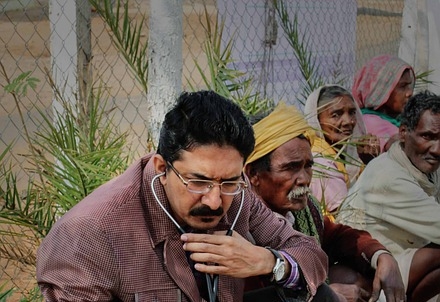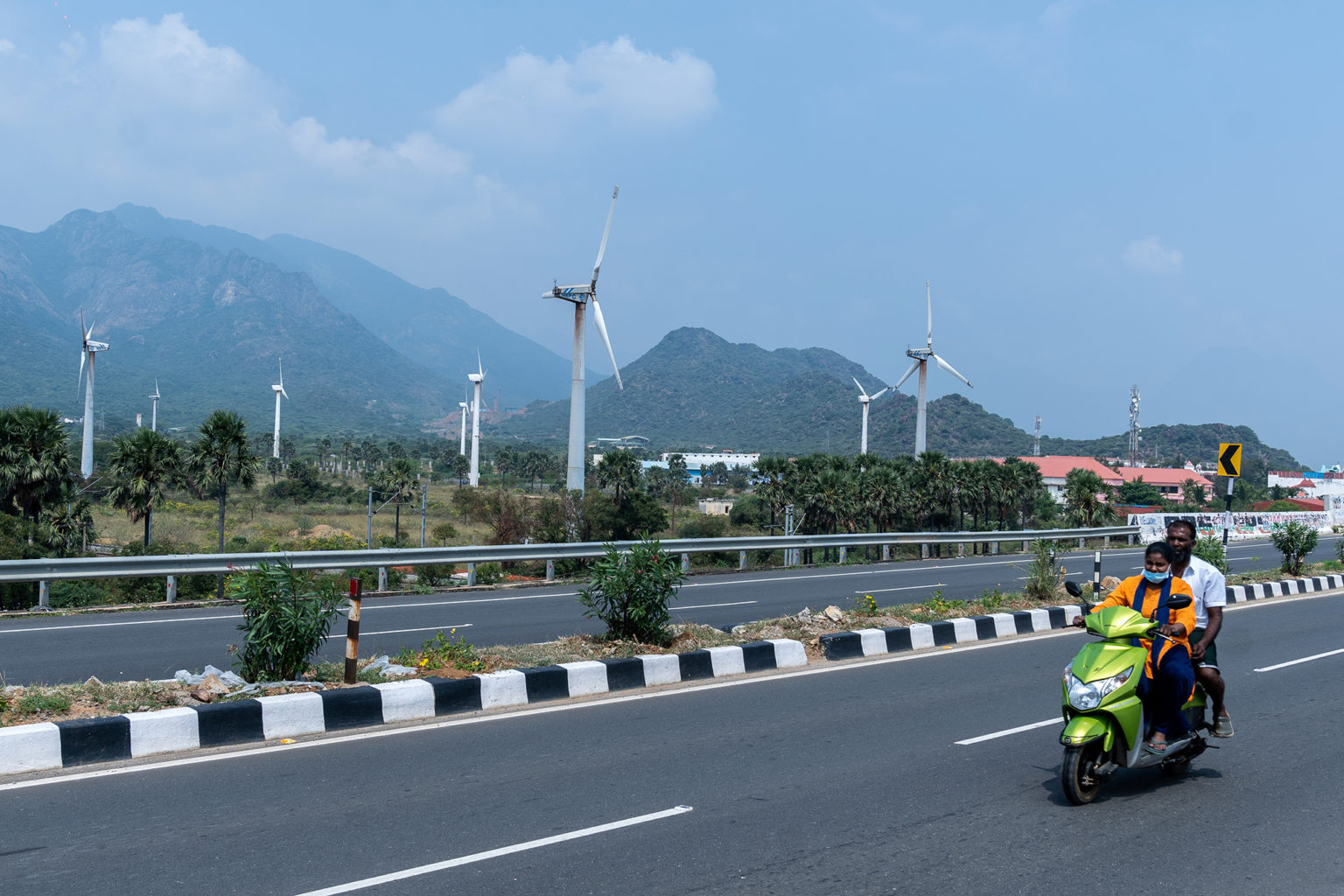Lunched recently with a young officer in the Army, and I was struck again by something I've long sensed: there's a look, a style, in many such men. I don't mean that at all disparagingly, but in the best possible way. They have a sort of bright-eyed idealism; a cheery respect for family, friends and authority; a clear sense of their part in how the world turns; and a devotion to their work.
Some will call all this patriotism. Perhaps so. Whatever it is, the Army's training schools do a fine job instilling this spirit in its officers, if I judge only from the number of times I've run into it. But what fascinates me is that I sensed the spirit not just in people like the Major I ate with, but at least thrice in officers I didn't even meet. Officers I couldn't have met, because they were dead.
Saurabh Kalia, Nawang Kapadia and Abhijit Gadgil. Wiry, athletic men all. Their legacy lives in their smiles, in the stories their families tell me about them. Wistful, misty-eyed in the telling -- yet also proud through the sadness.
For those who need them, the bare facts are quickly told. Captain Kalia was one of the six dead soldiers returned by Pakistan early in the Kargil war, their bodies mutilated. Lt Kapadia died in a shootout with terrorists near Kupwara in Kashmir in November 2000. In September 2001, Flight Lt Abhijit Gadgil was killed in a MiG-21 crash in the Rajasthan desert: one more in the long list of MiG crashes the IAF has suffered.
What happened to Kalia and his colleagues roused a nation to fury. Pakistan was branded an immoral state that would stop at nothing, not even mutilating dead soldiers' bodies. Arguably, nothing else during Kargil so defined that war, so defined our wartime patriotism. The other two deaths were less dramatic and high-profile, if no less tragic. Gadgil's actually had to do with our Western neighbour only peripherally, but raised some troubling questions.
 And in fact, that's the thing about deaths of military men: often, they
raise questions. The answers? That's the hard part.
And in fact, that's the thing about deaths of military men: often, they
raise questions. The answers? That's the hard part.
Take Saurabh Kalia. When he came home to his parents, his body had cigarette burns on it, his bones had been broken, as had his teeth, his ears had been pierced, his lips were cut, his nose chipped, his skull fractured and his eyes removed.
I could barely stomach reading these details in an account Saurabh's father, Dr NK Kalia, had written. I could barely listen as his parents, this ordinary Indian mother and father in their ordinary Himachal home, spoke to me of what their son looked like in death and how they have had to come to terms with it.
Because what happened to Saurabh Kalia was nauseating. But if it was that, the tragedy was also inexplicable. If you are willing to look, he left behind some hard questions. If you are willing to think, they will gnaw at you, as they gnaw at his parents, as they have gnawed at me for several years. For there seem to be no answers, only these questions, and that's a hard place to be for parents, for a nation, so brutally bereaved.
Still, five years on, we should be able to mull them over dispassionately. You'd think.
If the bodies were so badly mutilated, why did Pakistan not simply throw them away? Why bother to hand them back? Was the country so unaware of the outrage that would result? Why did India not make an immediate and loud fuss right there at the border? Why whisk the six dead soldiers away for a closed-door post-mortem in Delhi, which is what happened, and return them to their families only later? Why refuse the report of that post-mortem to the Kalia family? "Existing rules do not permit handing over the post-mortem report to the NOKs [next of kin]", says a letter from Army HQ to Dr Kalia. Which leaves them, and you, to wonder -- if NOKs cannot read such reports, who can?
Actually, the Kalia family has piles of letters about Saurabh's death, many from official India. Among their correspondents are then-External Affairs Minister Jaswant Singh, then-Defence Minister George Fernandes, then-Prime Minister Atal Bihari Vajpayee and the Army's then-Director General (Organization & Personnel) Lt. General HS Bagga. I mention these names not for the eminence of the men who wrote them, but to remark on the eloquence of the words they use to describe Saurabh. "Martyr", "valiant son" and "hero of Kargil" are just some. Here's Jaswant Singh:
-
Captain Saurabh Kalia made the supreme sacrifice in the defense of our
Motherland. He displayed great valour, courage and determination in the
pursuit of his goal to push out the Pakistani forces that had intruded
into our territory. History will record Captain Kalia's deeds in golden
letters and his name will be a beacon for many generations not only for
officers and men of the Armed Forces, but for all Indians. As a father,
you have been blessed to have such a gallant son.
In black and white, these are unequivocal acknowledgements of the valour of the son of this Himachal home. For a sorrowing family, they must have come as some small solace.
Yet here's one reality Saurabh's parents must grapple with: their son is conspicuously missing from the long list of Kargil awards. As are his five mates in tragedy. For these Indian heroes, there is no Param Vir Chakra, no Vishisht Seva Medal. Nothing. "History will record Captain Kalia's deeds in golden letters", wrote India's Foreign Minister. But India will not give him a Mention-in-Dispatches. A entire country was moved by his courage, revulsed by the violation of his body, loud in condemning our neighbour. But that country will not honour him.
Why?
Now it's true, not every battlefield death warrants a medal. But equally, not every battlefield death warrants the kind of ministerial eloquence that has flooded Dr Kalia's home. So what happened here? Did Singh and Fernandes write their letters only because of the mutilation? Was theirs a clear-eyed recognition of the effect the horror had on this country?
That line of questions leads only to the cynicism with which I view every move politicians make, so I'll let it go. But there are plenty of other questions, and I heard some of them from this young Captain's family.
Just why did they lose their son? Why do we send some of our finest young men into brutality on our borders? Why have we been doing it for over five decades now? When will it end? Is outrage reserved only for those who torture during a war? Should we also turn it towards the men -- Indian and Pakistani alike -- who keep peace so distant that soldiers die every day? Who urge us to define ourselves by how much hatred we direct across the border?
Many people tell me, angrily, that I must not ask all this. It "undermines" the country. It's "unpatriotic" to raise these issues when our soldiers are fighting and dying for the "glory" of the motherland.
Heard these phrases? Then consider what happened to Abhijit Gadgil, who wasn't even fighting.
In 2001, Gadgil was in his sixth year with the Air Force, and had been flying MiG-21s for four of those. In a note his family put together about him, they say:
-
It would not be wrong to state that he was actually in love with that
aircraft. He would sing its praises and boast about his achievements in
the operational theatre.
Gadgil earned his MiG-21 wings in Assam. But he wanted above all to be part of a squadron on the border, in the west. In 1998, he got his wish. He was posted to Suratgarh, Rajasthan. He seemed immensely happy there, flying a lot and participating "in every squadron activity ... he enjoyed the sand, his squadron and the company of his comrades-in-arms."
Until September 17, 2001. At about eight that night, Gadgil's MiG sped down the runway and took off into a moonless sky. 33 seconds later, it tore nose-first into the ground. At 470 kmph, it dug a nine-foot hole in his beloved sand. Of course Gadgil died, leaving behind a shattered wife and family. He also became a part of one of the IAF's more peculiar set of statistics. It reads like this:
-
1963 to 1970: 7 accidents; 1 per year.
1971 to 1980: 21 accidents; 2.1 per year.
1981 to 1990: 32 accidents; 3.2 per year.
1991 to 2000: 75 accidents; 7.5 per year.
2001 and 2002: 22 accidents; 11 per year.
MiG-21 accidents over the last forty years, of course.
It mystifies me that anyone could look at these numbers and either dismiss them as not cause for alarm (which then-Defence Minister, the same George Fernandes who wrote to the Kalias, did in 2003 by taking a flight in a MiG-21), or ascribe these crashes to "pilot disorientation" (which phrase the IAF has used repeatedly). Because even if pilots are disoriented on this scale, that begs the question of what kind of training the IAF is giving them to begin with. Because that is itself cause for alarm, and hardly normal.
And, as he did to the Kalias, Fernandes wrote to the Gadgils:
-
[T]hese crashes are not just a couple of years [old]. The history of
MiG crashes goes back to the early eighties. It is a problem that the
nation has to take on and solve.
Apart from noting that MiGs have actually been crashing even longer than Fernandes suggests, note too that he refers to this "problem" that the "nation" must solve.
In the words of Fernandes himself, they want to "solve" this "problem."
As an aside, something has changed for the better since AASF was founded. Whether through its efforts or otherwise, the number of MiG crashes decreased markedly in 2003.
Yet the questions remain, fueled also by how they have been received. In the IAF's only response to the Gadgils' several letters -- the ONLY response to date -- one Air Marshal Ashok Goel, Inspector General at the Air HQ, wrote to them in March 2003:
-
We have taken effort [sic] to explain to you the reasons leading to
the accident. The [aircraft] was fully serviceable at the time of
crash. We ... are quite convinced that the accident was due to
disorientation during a dark night take off. [Abhijit's] records do
indicate that he was weak in certain aspects of flying ... with
experience he managed to cope.
A venomous attack on the Air Force or its hierarchy does not, in my opinion, offer any solace. At worst, you may demoralise the Service. Such an act would not be in the best interest of the Nation ... It would be most unfortunate if your intentions are to disrespect the IAF. ... So far we have turned a blind eye to your tirade in public.
Are you as outraged as I was that this Goel would actually write in this vein to the family of one of the IAF's dead pilots? That he issues cloaked warnings about "demoralising the Service", "disrespecting the IAF" and, worst, harming "the best interest of the Nation"? Is Goel actually saying that the Gadgils' patriotic responsibility is to stop asking their questions?
So ask some final questions yourself: if Abhijit Gadgil was really "weak in certain aspects", why was he asked to fly that night? Why was he allowed to fly at all?
Or is there a simpler explanation: that Air Marshal Goel decided to use this excuse after the fact? That it is easier to fault a now dead pilot than admit to, and correct, problems with a fleet of fighters? Is this another line of questions that leads to cynicism?
There's a larger lesson here. Our armed forces are intimately part of what we call patriotism: witness the Air Marshal's reference to the national interest, or Jaswant Singh's reference to Saurabh Kalia's sacrifice for the motherland.
Yet scratch just a bit, and this supposed patriotism bites back.
Kalia and his men are almost pointedly overlooked for military awards, but true patriots must not question that dissonant note from the Kargil victory trumpets, nor the oddities surrounding their deaths. NOKs can't get post-mortem reports, let's remember. Pilots die in a stream of MiG crashes, but asking why, not the deaths themselves, demoralises the service. And that -- all together now -- harms the interests of the nation. Not even the pilots' families -- those NOKs again -- can know.
They come in a rush, all these thoughts, but they come. As I gaze at pictures of Kalia, Kapadia and Gadgil, as I understand the spirit in their bright Indian eyes, as I see it in the Major who lunches with me -- the questions spin through my mind.
And I stop there. Because I must not ask. Because I'm a patriot. Am I?























